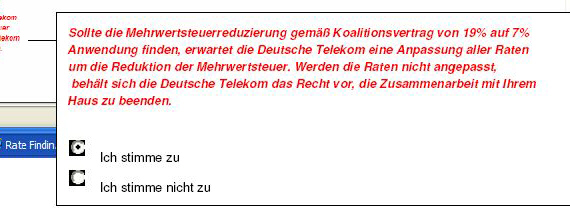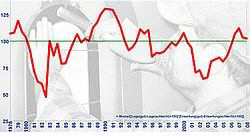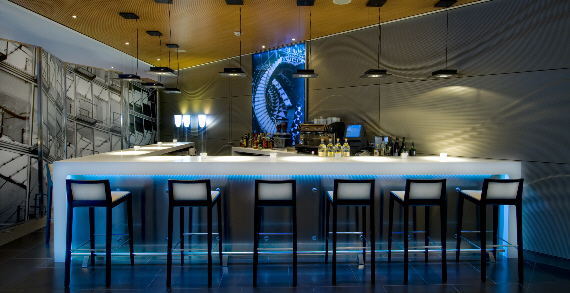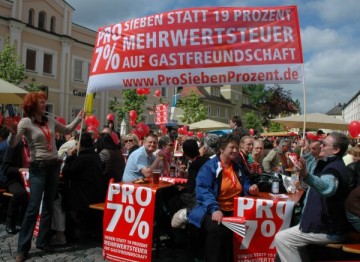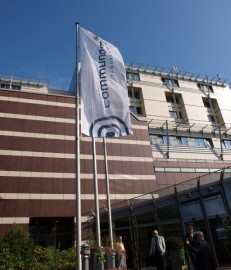
News & Stories
Berlin. The reduction of the value added tax by 12 percent for accommodation services is part of the coalition agreement of the new German Federal Government and is scheduled to become effective in January 2010; however, it is causing a big fuss. The Federal Council has its final debate concerning this subject on December 18. The federal states are not willing to do without their tax revenues. The bulk of media reports unilaterally about the planned reductions. In the industry itself, extortionate demands of corporate customers are causing uncertainties. The German Hotel and Restaurant Association, which is convinced of its realisation, is working on operation guidelines for hotel managers at full speed.
Bethesda/Chevy Chase. The poor economy and Marriott's own bad figures have now forced the company to tighten internal structures. Accordingly, Ritz-Carlton, Marriott's luxury hotel subsidiary is shifting employees in important positions under Marriott's big umbrella. The luxury brand of Ritz-Carlton, however, is said to remain unchanged in its core.
Wiesbaden. The hospitality industry has concluded its budgeting for 2010. Never before has there been as much insecurity as this year. In Europe, the cost-saving measures taken give reason to hope for increasing income while economic conditions remain unchanged. Therefore, the industry rather does not expect revenues to grow. Between the lines of this international survey by hospitalityInside.com there is a clear message: the financial crisis has intimidated hotel managers even more, and everyone fears damaging "shareholder value" through honest statements.
Berlin. At the beginning of October, the Spanish hotel group Abba opened its first hotel in Berlin, which is the first hotel in Germany; a second one is to follow in Munich in 2011. The small chain remains faithful to its goal and relies on top locations. "Even if the name Abba suggests Swedish connections, the new hotel in Berlin and the hotel group have Spanish roots," says Juan Ramón Acín, Managing Director of Operations of Abba Hotels.
Vienna. "Now the ball is in the government's court!" Max Linder declared, President of the Austrian Tourism Committee in a motion for a resolution and demands a further reduction of value added tax. Austria's hotel industry fears competition from Germany after the new coalition government announced a drastic cut in VAT rates.
Berlin. The joy with which German hoteliers received the news of the VAT reduction from 19 to seven percent is great across the country, even if the very cautious among them prefer to hold back with their celebrations until the decision is finalised. The German Business Travel Association VDR has appealed to hoteliers to reduce rates as of 2010 and even Austria and Switzerland worry that competition with Germany will increase.
Westlake Village. Overall hotel guest satisfaction in Europe has increased notably from 2008 to achieve a five-year high in 2009, with improvements occurring in all ranked brands and across all segments, according to the J.D. Power and Associates
Berlin. The rate of VAT applicable to overnight stays in the German hotel industry is to be reduced by 12 percent effective as of 1 January 2010. The sector is very pleased and relieved at the success which comes thanks to the persistent efforts of the German Hotel and Restaurant Assocation Dehoga and the Hotel Association Germany. Now, investments are to be made in hotels and their staff. The move also provides an opportunity to plug the financial holes which have grown in size in the crisis-buffeted industry. For hotels in border regions to countries where a lower VAT rate applies, competitive disadvantages will be smoothed. The catering industry, however, will not benefit from the reduction.
Salzburg. After a decade of two-digit growth, the Austrian Einkaufsgenossenschaft Hogast is currently idling at the previous year's level - despite increasing membership figures. Hoteliers are holding back in terms of purchase.
Bonn. For a short while, eight former Telekom conference hotels with a total of 1,552 rooms have operated in Germany under the name "Commundo Tagungshotels". It's hoped than the new name will break down barriers to the hotels and that demand will increase from external companies as well as from private overnight guests. In spite of the crisis in the meeting market, the group expects to record sales growth this year.
